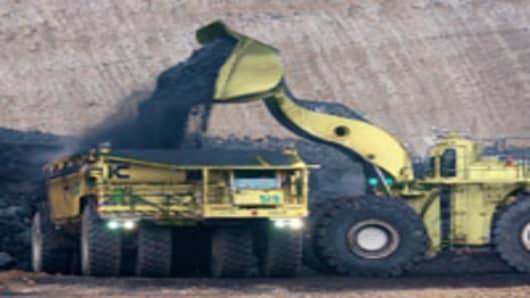Beijing's ambassador to Australia has defended Chinese investment in local resource firms as Canberra considers whether to approve a $19.5 billion tie-up between state-owned metals firm Chinalco and Rio Tinto.
"Rather than using emotive language, we should approach this matter in a rational and comprehensive manner," Zhang Junsai wrote in The Australian newspaper on Thursday.
"Despite recent growth, investment from Chinese companies is still small. By the end of 2008, about 300 Chinese companies had directly invested in Australia, less than 1 percent of total foreign investment in Australia," Zhang said.
Anti-Chinese sentiment has been rising in Australia with opposition lawmakers accusing mandarin-speaking Prime Minister Kevin Rudd of being a "roving ambassador" for China, threatening to sour billions of dollars worth of Chinese investment.
"We have to understand China is both a friend and competitor," senior Australian conservative lawmaker Tony Abbott told local television on Thursday. "China is motivated by its own self-interest. They are not doing us any favors," Abbott said.
The Chinalco deal with Anglo-Australian mining giant Rio is being considered by Australia's foreign investment watchdog, with politicians from both the center-left ruling party and the conservative opposition calling for it to be rejected.
More From CNBC.com
- China, US Will Broaden Forum to Further Ties
- Australia Treasurer Won't Rule Out 3rd Stimulus
- China's Minmetals Offers $1.2 Billion for OZ Assets
- More Asia Pacific News
An investment by another state-owned Chinese firm, Minmetals, in Australian miner OZ Minerals was rejected by Treasurer Wayne Swan last week on national security grounds, although a revised $1.2 billion bid that addresses security concerns is back with the review board.
Following approval on Tuesday of a $438 million Chinese investment in iron ore miner Fortescue Metals Group, Zhang sought to cool suspicions that China's government would try to exercise control over resource firms.
"State-owned enterprises are no longer entities under a highly-centralized planned economy," he said. "Chinese companies investing in Australia, state-owned or private, do not seek to control Australia's energy or mineral resources.
"Like companies from other countries, they seek a long-term, sound and reliable supply of energy and resources."
Zhang said two-way trade between China and Australia had risen from $8.4 billion eight years ago to $59.7 billion last year.


